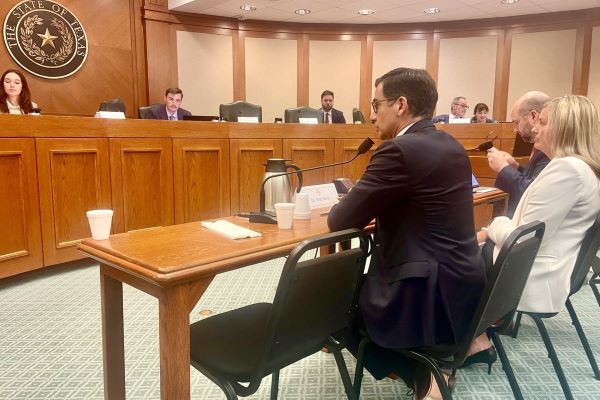
Armed with interim charges, the Texas Senate Committee on Health and Human Services recently held its first hearing in the runup to the 2025 state legislative session. The Texas Medical Association was a key participant, offering recommendations for viable alternatives to employer-based health insurance and urging lawmakers to increase state funding for cancer prevention efforts.
Texas Lt. Gov. Dan Patrick charged the committee with, among other things:
- Studying the Texas health insurance market and alternatives to employer-based coverage; and
- Evaluating state funding for cancer screening at the Cancer Prevention and Research Institute of Texas (CPRIT).
Regarding the insurance charge, TMA President Ray Callas, MD, and Council on Legislation Chair Zeke Silva, MD, submitted written testimony to the committee for its May 14 meeting, presenting a framework to guide its efforts. Dr. Silva also provided oral testimony.
“[O]ur experiences have taught us that successful innovation seeks balance between ensuring timely access to appropriate, high-quality care and reducing regulatory inefficiencies and administrative waste,” they wrote.
In addition to explicating several alternatives, including direct primary care, value-based care, innovation waivers, and a state-based marketplace, Drs. Callas and Silva recommended the committee ensure any alternative coverage options:
- Include necessary protections for people with preexisting conditions and meaningful coverage;
- Adhere to consumer and clinician protections, including network adequacy standards, prompt payment, mental health parity, independent review of prior authorization denials, and gold-carding requirements; and
- Disclose any limitations.
The TMA leaders also encouraged the committee to address the barriers between Texans and current health insurance market options, some of which they said are erected by health plans: inadequate networks, out-of-date provider directories, onerous prior authorization requirements, patient steering, and disparate payment for telemedicine and in-person services among them. Others, such as complicated enrollment processes for public programs like Medicaid and the Children’s Health Insurance Program, fall within the state’s domain.
“While alternatives to health insurance may one day prove effective in improving our health care system, the transition will take time and have challenges of its own,” they wrote. “In the meantime, we must continue to emphasize the need to reform the existing health insurance regime.”
TMA also submitted written testimony regarding the committee’s cancer-related charge, taking a similarly two-pronged approach.
First, TMA encouraged lawmakers to increase funding of CPRIT to bolster access to recommended screening tests, tobacco cessation programs, and human papillomavirus vaccinations, all of which can help decrease cancer morbidity and mortality.
Second, the association pushed lawmakers to focus its cancer prevention efforts in rural areas, where there is limited access to health care, and among high-risk groups, including un- and underinsured individuals and adults under the age of 50, a demographic that has experienced an uptick in colorectal cancer rates.
“TMA applauds the Texas Legislature for continuing to make the fight against cancer a statewide priority, and we urge further momentum in this work,” TMA wrote.
The Texas Legislature will reconvene for next year’s session on Jan. 14, 2025.
For more information on TMA’s recent testimony to the Texas Legislature, check out the association’s dedicated webpage.
Emma Freer
Associate Editor
(512) 370-1383